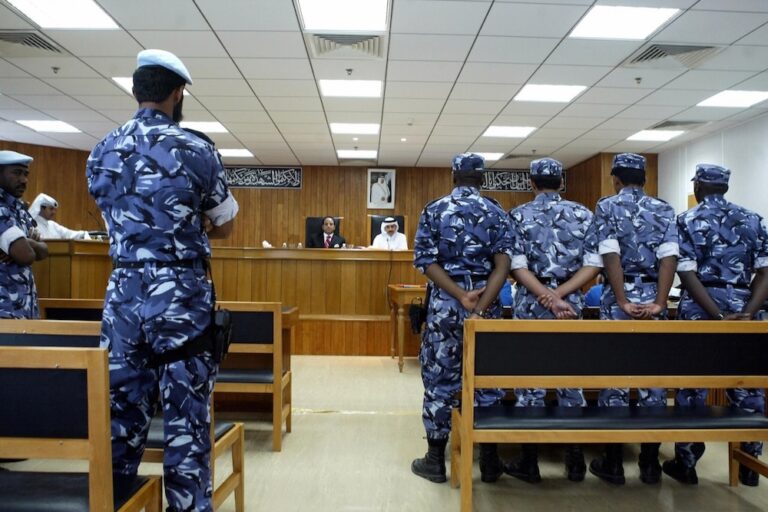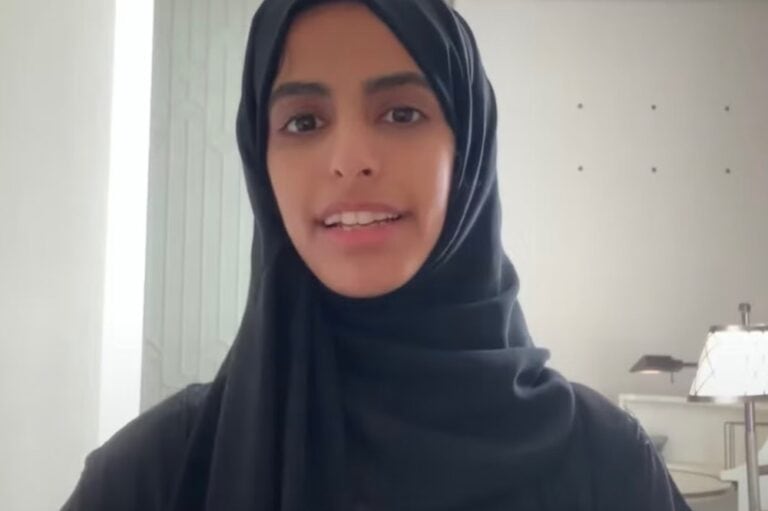Mohammed al-Ajami is serving a 15-year prison sentence in Doha, Qatar for the contents of his poetry.
This statement was originally published on adhrb.org on 20 October 2015.
United Nations human rights experts called for the release of the Qatari poet Mohammed al-Ajami on the second anniversary of his prison sentencing. Al-Ajami is currently serving a 15-year prison sentence in Doha for the contents of his poetry. Americans for Democracy & Human Rights in Bahrain (ADHRB) welcomes the statement from the UN Special Rapporteurs and calls on the Government of Qatar to heed its recommendations by releasing al-Ajami immediately.
David Kaye, the UN Special Rapporteur on freedom of expression, Farida Shaheed, the UN Special Rapporteur on cultural rights, and Mónica Pinto, the UN Special Rapporteur on the independence of judges and lawyers, addressed al-Ajami’s case through a December 2012 communication to the Government of Qatar. In their communication, the Rapporteurs expressed concern that the arrest, detention, and sentencing of al-Ajami may have been “solely related to the peaceful exercise of his right to freedom of opinion and expression,” further noting concerns regarding his trial proceedings and treatment while in detention. ADHRB and other international NGOs have engaged the special procedures regarding similar concerns in the past.
Today’s statement expands upon the Rapporteurs’ previous concerns about al-Ajami’s case. Rapporteur Kaye criticized the arrest, detention, and sentencing of al-Ajami, stating that they “seem to be solely related to the peaceful exercise of his fundamental human rights,” while Rapporteur Shaheed condemned the penalty imposed on al-Ajami as disproportionate, adding that it “amounts to political censorship to art and expression.” Rapporteur Pinto similarly expressed her worries about the sentence given the special rapporteurs’ receipt of “serious indications that the criminal process did not meet all the judicial guarantees of a fair trial.”
“The Special Rapporteurs’ statement makes clear that human rights violations in Qatar do not end with migrant rights abuses. Like the rest of the Gulf Cooperation Council, Qatar must end the criminalization of free speech and artistic expression,” said Husain Abdulla, Executive Director of ADHRB. “Qatar cannot continue to ignore the international community’s calls for al-Ajami’s release. Criticizing ruling authorities, no matter the medium, is not a crime.”
ADHRB calls on the Government of Qatar to release Mohammed al-Ajami and to end the misapplication of its laws to restrict rights to free speech and expression. Qatar must abide by its international commitments and respect its citizens’ human rights in accordance with the principles of the Universal Declaration of Human Rights.
Click here to see ADHRB’s work on al-Ajami’s case at the UN Human Rights Council.



